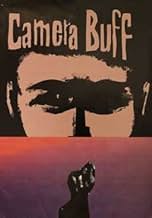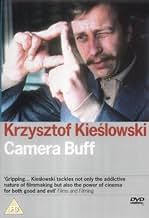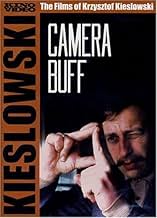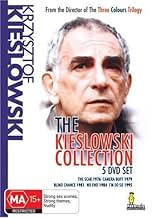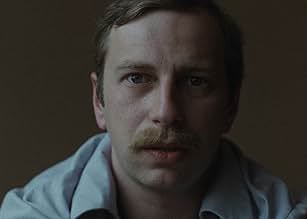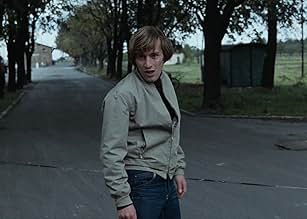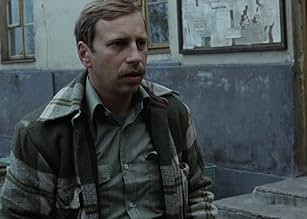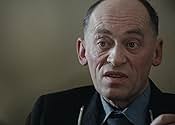An ordinary factory worker buys a camera on the occasion of the birth of his child. The authorities order him to make documentaries about the factory's success. But his endeavor to be truthf... Read allAn ordinary factory worker buys a camera on the occasion of the birth of his child. The authorities order him to make documentaries about the factory's success. But his endeavor to be truthful leads him to opposition against censorship.An ordinary factory worker buys a camera on the occasion of the birth of his child. The authorities order him to make documentaries about the factory's success. But his endeavor to be truthful leads him to opposition against censorship.
- Awards
- 6 wins total
Featured reviews
Now, his boss wants him to film the 25th anniversary celebration of the company. He really gets into filming and soon runs headlong into "rules." Of course, you have rules in a communist country. His wife is not too excited about his new hobby, but he soon gets his film entered into a film festival.
Soon, like all who truly love film, Filip is attending screenings, talking to directors, and reading film magazines to improve his craft. But, more and more his wife is displeased, and his boss is cooling to the idea as he moves from filming the company to social statements.
His desire for tranquility gives way to a desire for fame and art at the cost of his wife and family.
He also discovers the unintended consequences of reporting the truth. In the end he turns the camera on himself as he realizes he had everything in the beginning and lost it all.
A fascinating look at real cinema and finding what you want.
Camera Buff is a wonderful story about a factory worker Filip (Jerzy Stuhr); a man who, in his thirties, begins to see life anew through the view finder of a small gauge movie camera. Originally purchased for "two months salary," which "pissed his wife off" to document his newborn daughter's first few steps, the 8 mm camera is quickly realized as something more useful than just a device for making home-movies. The narrative's tension is organized specifically around the reaction to the films of the institutional power structures and forces around Filip that essentially commissioned, financed, and instigated the films themselves along with Filip's newly discovered and unyielding passion for creating them as he sees fit.
If you view the Kino Video DVD release of this film, perhaps even more profoundly affecting than the feature as an augury of hope for the human race is the sixteen minute black and white documentary entitled Talking Heads in which Kielowski conducts helter-skleter a multitude of fifteen second interviews about "who you are" and "what you want" with Polish citizens, age zero to one-hundred, across all walks of life starting at the year 1979 with a little gurgling baby. In all, it's wonderful material and has me seeking out more Kieslowski.
Krzysztof Kieslowski's third feature is a meditation on the power of film and the inability of a finite work of art to accurately reflect the infinite world, or even the myriad complications of a small town. As Stuhr's skills and connections grow, he comes to see everything through an imaginary camera lens, not seeing anything outside his self-imposed frame. Beautifully shot by five cameramen, dialogue by Stuhr, make this a fine journey of self-discovery.
Did you know
- TriviaThe film's opening scene and Irka's nightmare about a hawk killing a chicken are reminiscent of Ken Loach's Kes (1969) -- a film about a boy who takes to training a wild kestrel in order to escape his troubled life. Later, Filip can be seen reading a filmmaking text and turning to a section about Ken Loach and Kes (1969). This reference is twofold. First, Filip is clearly inspired by filmmakers like Loach in making social realist films about working-class people. Second, Irka is tormented by images mirroring Kes (1969) which represent her husband's budding obsession with this type of filmmaking.
- Quotes
Piotrek Krawczyk: [looking at a roll of motion picture film] It's beautiful what you guys do. A person's no longer alive, yet she's still here. It's beautiful.
- ConnectionsFeatured in Fejezetek a film történetéböl: A lengyel film (1990)
- How long is Camera Buff?Powered by Alexa
Details
- Release date
- Country of origin
- Language
- Also known as
- Camera Buff
- Filming locations
- Rabka-Zdrój, Malopolskie, Poland(train station)
- Production company
- See more company credits at IMDbPro


